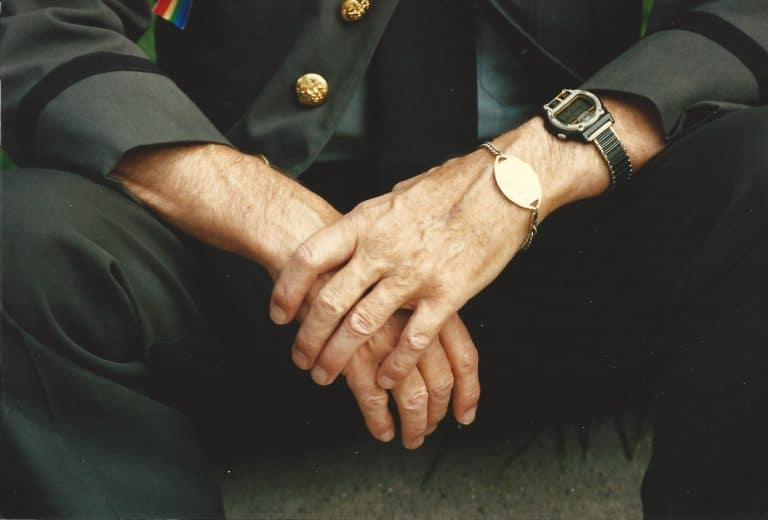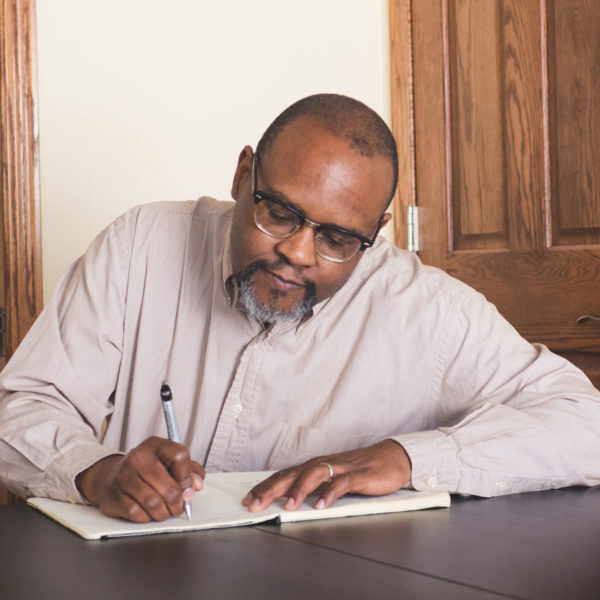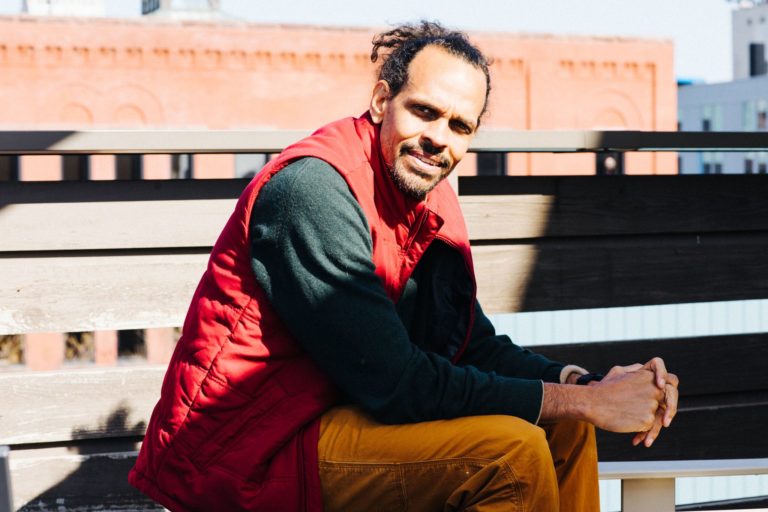
Image by Elvert Barnes/Flickr, Attribution-ShareAlike.
Uniforms Don’t Make Heroes
Watching television the other day, I came across the series M*A*S*H, which I hadn’t watched in years. My nine-year-old entered the room, asked what I was watching, then quickly became absorbed in the humor and peppered me with questions. I recalled my own pre-adolescent years when M*A*S*H premiered and I was a boy living with my family on an Army base where my father was stationed.
It reminded me of a time when “heroes” and “heroism” were much more contested terms than they have become in the past few decades. The tendency to describe almost anyone in a uniform — police, military, firefighter — as a hero has returned in our culture. But I grew up in the 1960s and ’70s when that term was more complicated.
This was especially true because, as the son of a 30-year Army veteran who served tours in Korea and Vietnam, I was surrounded by a military culture increasingly challenged by the wider American culture (and counter-culture).
I spent most of my childhood on military bases and learned that soldiers were like everyone else: Some were principled, caring, competent; some were self-serving, bigoted, ignorant. And the social struggles of the times reinforced that.
M*A*S*H premiered in 1972, while U.S. combat troops were still fighting in Vietnam. Yet the show, which ran for 11 years, directly critiqued military culture, war, and knee-jerk patriotism. Its main characters contended not with enemies on the battlefield but with bureaucracy, bigotry, authorities and authoritarianism, violence, and war itself. Their tools were humor and compassion and humanity and healing, not weapons. More than 100 million viewers watched the series finale in 1983. For us, the characters’ actions rendered them heroic, not their uniforms.
But over the course of my life, views have shifted.
Throughout the 1980s and 1990s, a deference to those in uniform returned. From the invasion of Grenada and the first Gulf War, I sensed an increase in the reverence for those in the military. And as fear of crime rose, I saw reverence for police rise. Both seemed to reflect an “us-against-them” mindset that rose exponentially after the terrorist attack on September 11. Suddenly, the presence of a uniform itself conveyed heroism, the Good Guys, the people on “our” side. In the case of the military, this may have been furthered by the fact that a dwindling percentage of our population actually serves in the armed forces.
You’d think we would remember that the men menacing civil rights protesters in the 1950s and ’60s — turning fire hoses on children — wore uniforms; that the men attacking gay men and trans women during the Stonewall uprising wore uniforms; that the people torturing prisoners under their care at Abu Ghraib wore uniforms; that Chicago police officials sent to prison within the past decade for criminal abuse of suspects wore uniforms; that even now the sexual assaults on women in the armed forces are carried out by people in uniforms.
You’d think we would recall that on each occasion, other people in uniforms cooperated with or protected the wrongdoers with their silence.
But so often when allegations of official misconduct arise — the murder or abuse of protesters, LGBT folks, immigrants, people of color, and other marginalized people — defenders and rationalizers insist that we treat anyone wearing a uniform as a hero first; they demand that police be given the benefit of the doubt. They seem not to recognize that they stand on morally dangerous ground, that heroism isn’t about a uniform, a societal role, or the organization you belong to.
Heroism is a moral category; it appears in moral acts, not symbols of power or authority. Morality doesn’t come from swearing an oath or taking on a job, however dangerous it may be. Morality belongs in the category of actions. And a hero is someone who engages in moral actions in the face of great danger — social, financial, emotional, physical.
At the same time, a bigot in a uniform remains a bigot. A racist in a uniform is still a racist. A sexist or homophobic or Islamophobic person isn’t automatically transformed by their profession. Whatever one’s motivation for putting on the uniform, clothes don’t erase those flaws. And there’s no heroism in looking away from or denying the failings of those who wear the same uniform. There’s no heroism in allowing others to degrade your profession or your community or your country with your silence.
Even further, when the word “hero,” or the cloth of any uniform, gets trotted out to cover or excuse wrongdoing, it insults the people — in and out of uniform — who have acted with moral courage. Because there are people in uniform who behave heroically.
During Vietnam, the helicopter crew that intervened when they saw other U.S. soldiers slaughtering unarmed men, women, and children at My Lai, and who reported the massacre to their superiors, also wore uniforms. So did some of the attorneys — military lawyers — who argued all to the way to the Supreme Court for the rights of prisoners held in Guantanamo Bay. Some soldiers and police officers have sacrificed their careers to make sure that corruption and misconduct are seen and punished. Their uniforms didn’t make them heroes. It was their unwillingness to ignore injustice, to let uniforms and authorities and powerful institutions be used as excuses for oppression.
These days, I find myself less interested in naming people heroes — as though any act or set of acts can completely define a person, as though we should turn anyone into a deity — and more comfortable describing what heroic acts look like:
They look like John Dean, Nixon’s former White House counsel, who faced the entire apparatus of the administration to show that his former boss — the most powerful person in the world — was a liar and a criminal.
They look like the Hollywood Ten, the writers and directors during 1950s McCarthyism, who refused to inform on friends and colleagues exercising their constitutional right to free association and had their careers interrupted and even destroyed because of it.
They look like Anita Hill, the Black woman who, in the face of scorn and vicious attacks, told the truth of then-Supreme Court nominee Clarence Thomas’s sexual harassment of her. And they look like the women today naming their abusers and calling them to account.
They look like Muhammad Ali foregoing some of the best years of his boxing career — and risking prison — to assert his religious opposition to participation in the Vietnam War. And they look like Colin Kaepernick who has followed in Ali’s tradition in his protests against injustice in the policing of people of color.
They look like Daniel Ellsberg breaking the law and facing treason charges to leak the top-secret Pentagon Papers that told truth about U.S. involvement in Vietnam.
They look like the Sanctuary Movement of the 1980s, in which secular and religious people across the U.S. defied Reagan-era limits on immigration to aid and shelter refugees fleeing from conflicts in Central America — conflicts fueled by U.S. foreign policy.
They look like Andrew Goodman, James Chaney, and Mickey Schwerner, and like Viola Liuzzo, 1960s civil rights activists who died while working to bring about a more just world.
What these acts share is how widely those who performed them were — and sometimes still are — condemned. They’ve been often vilified as liars, traitors, and cowards. They’ve lost jobs, careers, and even their lives for their actions.
Our culture loves heroes but wants it both ways. We exalt heroes as exceptional, but we also want to identify them as “us.” We claim that the hero represents the community and use that to justify characterizing the community — the nation — as heroic. It becomes a way to defend the status quo and the powers that be, to claim that we’re collectively morally superior.
But as the attacks on those who act heroically demonstrates, heroism by definition violates convention. Heroic acts often run contrary to the common sense or prevailing wisdom of the moment. Those of us on history’s margins know that heroic acts often lead to long, lonely journeys. If this country wants real heroism — and we sorely need it now — we have to rescue heroism from its ties to certain occupations.
Ultimately heroism isn’t about how good we are now. Instead, heroic acts illuminate the distance the rest of us have to travel to be the people and nation we ought to be.
Actions and integrity, not uniforms, define us. When we at long last learn that lesson, we will start to be worthy of the heroic actions those before us have performed.


Share your reflection